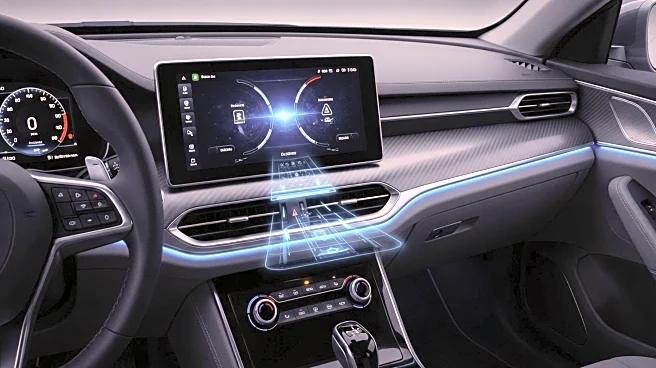What's Happening?
Tesla's latest software update includes a feature that recommends drivers engage Full Self-Driving (FSD) when drowsiness is detected. This update, discovered by a Tesla hacker, suggests FSD as a safety net for drivers who are less alert. The feature raises questions about Tesla's messaging and the balance between marketing, safety regulation, and real-world driver behavior.
Why It's Important?
The recommendation to use FSD when drowsy highlights potential safety and regulatory challenges for Tesla. While the feature aims to enhance safety, it may lead to increased reliance on FSD in unsafe situations, raising concerns among regulators and safety advocates. The update reflects Tesla's ongoing efforts to promote FSD despite criticisms and legal challenges.
What's Next?
Regulators and safety advocates are likely to scrutinize Tesla's new FSD feature, potentially leading to closer examination of the technology's safety implications. Tesla may need to address these concerns to avoid legal and reputational risks. The company's approach to FSD could influence future developments in autonomous driving technology.
Beyond the Headlines
Tesla's FSD update underscores broader industry debates about the role of automation in driving safety. The balance between technological innovation and regulatory oversight will be crucial in shaping the future of autonomous vehicles.










